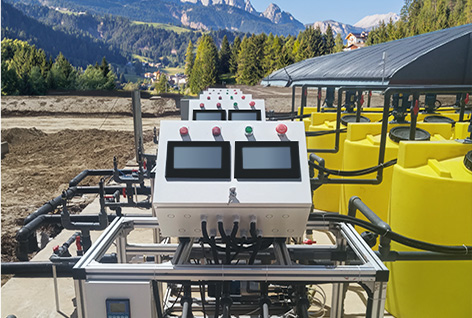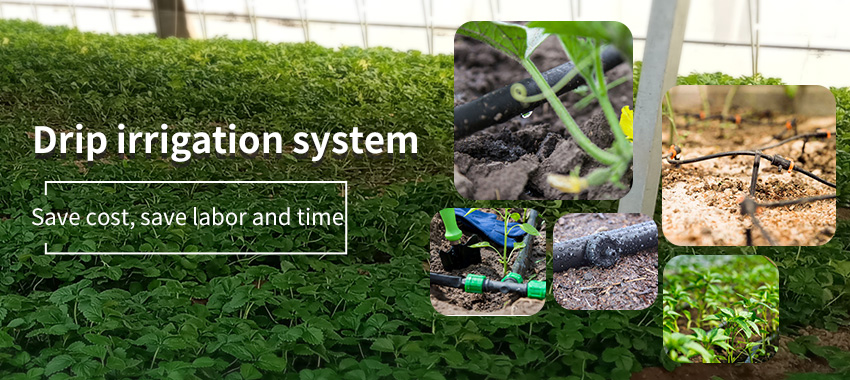In our quest for sustainable living, smart irrigation solutions have become an essential component of sustainable gardening practices. This article will explore the importance of sustainable gardening, the challenges associated with traditional irrigation methods, and how smart irrigation solutions can address these issues.
Challenges of Traditional Irrigation Methods

Traditional irrigation methods typically involve watering manually by turning on a hose or sprinkler system at regular intervals. While this method may be effective in some situations, it has several drawbacks. First, manual irrigation methods can result in overwatering or underwatering, leading to water waste and plant stress. Second, traditional irrigation methods are not sensitive to changing weather conditions or soil moisture levels, resulting in unnecessary watering when conditions are already湿润. Finally, traditional irrigation methods may lead to soil compaction and erosion, as well as an increased risk of waterlogging and disease development in the garden.
Benefits of Smart Irrigation Solutions
Smart irrigation solutions use advanced technology to address the challenges of traditional irrigation methods and ensure efficient water use in gardens. These solutions use various sensors and monitoring devices to collect real-time data on weather conditions, soil moisture levels, and plant health. This data is then used to determine the optimal irrigation schedule for each plant, ensuring that they receive sufficient water while minimizing water waste.
Smart irrigation solutions have several benefits:

Water Savings: By using real-time data to determine the optimal irrigation schedule for each plant, smart irrigation systems can significantly reduce water usage, saving homeowners money and helping to conserve water resources.
Plant Health: Smart irrigation systems are designed to meet the specific watering needs of each plant species and ensure that they receive sufficient water without overwatering or underwatering. This leads to healthier plants and better garden yields.

Efficiency: Smart irrigation solutions use advanced technology to automate the irrigation process, saving homeowners time and effort while ensuring that gardens receive the necessary amount of water at the appropriate time.
Environmental Protection: By reducing water waste and promoting efficient water use, smart irrigation solutions help to protect the environment from excessive runoff and soil erosion while providing a sustainable solution for garden irrigation.
Types of Smart Irrigation Solutions
There are several types of smart irrigation solutions available on the market today, each with its own unique features and advantages:

Smart Sprinkler Systems: These systems use weather sensors and soil moisture sensors to determine the optimal irrigation schedule for each plant. They can be set to automatically adjust irrigation times based on weather conditions and can be controlled remotely using a smartphone app.

Drip Irrigation Systems: Drip irrigation systems deliver water directly to a plant’s roots, reducing water waste and maximizing.
conclusion
Smart irrigation solutions have become an essential component of sustainable gardening practices. These solutions use advanced technology to collect real-time data on weather conditions, soil moisture levels, and plant health to determine the optimal irrigation schedule for each plant, thereby ensuring efficient water use and reduced water waste.